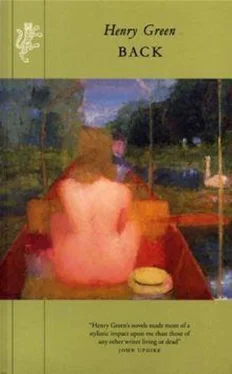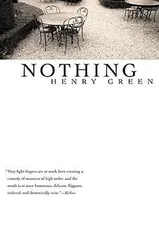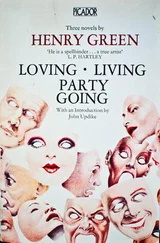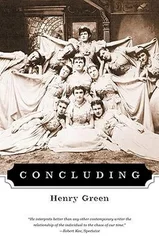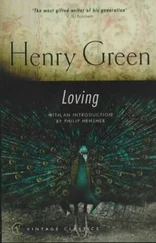“Hallucination may be a new revelation of the real world,” the novelist and critic Philip Toynbee wrote in 1946 in the all-too-real world of post-Second World War Britain. 1He was reviewing Back , set in the closing phase of the war, when imminent Allied victory was overshadowed for the British by the effects of years of deprivation and by a new hazard in the form of pilotless missiles — to many people, more terrifying than the blitz of 1940–41. Henry Green had already written about the war’s early years in his novels Caught (1943) and Loving (1945), as well as in some short stories which, as John Updike was to say, operate “at full tilt, bringing to the inferno of blitzed London a descriptive power of almost lurid virtuosity”. Beneath the stylistic fireworks, though, these works were developing a sombre exploration of the human capacity for making chaos — in politics by implication, but above all in personal relationships and in the individual psyche. Back , for all its final elements of optimism, is Green’s most painful expression of this theme: so painful that in the escapist literary climate in which it appeared, few reviewers other than Toynbee had much good to say about it. 2Kate O’Brien, writing in the Spectator , summed up the general reaction when she warned people off this “small, grey, personal book: very sad, very narrow … greyly and coldly misted in small, mad sorrow”. 3It was “a work of art”, she acknowledged, but it was “not for all readers”.
O’Brien was right at least about the art, and also about how personal it is. In terms of Green’s own experience, the book’s roots lay as far back as the First World War, in the second half of which his parents had turned part of their country house, Forthampton Court, on the Gloucestershire-Worcestershire border, into a convalescent home for officers — a domestic version of Craiglockhart, the Scottish hospital where, around the same time, Wilfred Owen had met Siegfried Sassoon. Henry Yorke (Green was his pen-name) was then in his early teens and his encounters with these gassed, shell-shocked, terrified visitors during school holidays had an impact on him all the more forcible for its contrast with the somewhat daunted confidence which he had previously felt in the apparently invincible world of adult men. (His father was a clever, successful business man and there was a regiment of high-ranking military uncles.) One episode which he later vividly remembered involved a trembling wretch who could not eat or sleep and screamed at the sound of laughter or the banging of doors. One day the man seemed better and set off from the house on a bicycle ride but he quickly turned back, wobbling desperately. Soon after leaving Forthampton, he committed suicide. 4
Elaine Showalter has written that “The Great War was the first and, so far, the last time in the twentieth century that men and the wrongs of men occupied a central position in the history of madness” 5but men’s writing about subsequent wars suggests that in this respect as in some others, the Great War never in fact ended. Certainly its psychological impact was still being felt in 1939–45 — a point made in Back when the grief-bewildered Mrs Grant mistakes Charley Summers on his return from prisoner-of-war camp for her brother, killed in 1917. Henry Yorke’s own elder brother died of leukaemia in the same year and the events of that momentous period may have contributed to a psychological vulnerability which found different kinds of expression in Henry Green’s fiction. One of its manifestations is the intense romantic neediness of characters like the depressed Elizabeth in Concluding (1948), who “helped [her lover’s] heart find hers by fastening her mouth on his as though she were an octopus that had lost its arms to the propellers of a tug, and had only its mouth now with which, in a world of the hunted, to hang onto wrecked spars”. 6 Back is Green’s most extended attempt to plumb the world of the hunted — and haunted — but the theme is present throughout his work, from the (literally) blind dependency of the central character of the first of his nine novels, Blindness (1926), through the longings and inadequacies of the fire-station chief Pye in Caught (1943) and the butler Raunce in Loving (1945), to the amorous idiocy of the middle-aged father, Arthur Middleton, in what proved to be his final book, Doting , published in 1952, when Green was still only in his mid-forties.
After Doting , the novelist was to lapse into morose fictional silence, a heavy drinker and increasingly a recluse. In 1947 he had written a grimly comic autobiographical sketch about a man with a paranoid hangover, but it was some years earlier that friends — close women friends, especially, such as Rosamond Lehmann — had begun to talk about how seriously he was drinking. Whisky plays a part in the nightmare of the otherwise abstemious Charley Summers, the central character of Back , and Green’s own gin habit may have contributed to what Philip Toynbee described as the book’s hallucinatory nature.
It may also have helped to produce some eccentricities in terms of plausibility, organization and stylistic texture, the most obvious of which is also the book’s most ambitious and far-reaching (if somewhat perfunctorily incorporated) device: the insertion, halfway through, of twelve pages of a translation from a semi-fictional eighteenth-century autobiography, the Souvenirs attributed to the Marquise de Créqui. Green’s friend Nancy Mitford had lamented that Caught was not Court — a novel entirely about upper-class people like the Yorkes themselves, rather than largely about firemen. 7In an oblique way, the French episode in Back answers her regret. Although Green is best known for his depiction of the lives of working-class and lower-middle-class English people, he had always been a devotee of aristocratic French literature and his work often juxtaposes normally divided social milieux. As a young man he avidly read Proust. Among the books to which he returned in the Second World War was Les Liaisons dangereuses . And he made more than one translation from the Souvenirs , the seven volumes of which are still in the library at Forthampton. 8He was attracted by the formal artifice of the genre as much as the kinds of society which it depicts, and used the influence with particular success in the construction of his last comedies, Nothing (1950) and Doting . For now, however, he was mainly intrigued by episodes in the Souvenirs which concern obsession and mistaken identity — themes which are also found in his other novels and which are related to his interest in all forms of duplicity, from pseudonyms to bigamy.
The delusion of Charley Summers, in his obsessive grief for the dead Rose, that her half-sister Nancy is Rose herself, closely parallels that of Septimanie de Richelieu in the episode from the Souvenirs . Septimanie has been in love with the Comte de Gisors, who married someone else and subsequently died. Through outside intervention, she meets an illegitimate half-brother of the Comte, who is his double. What the narrator of the Souvenirs says can also be applied, mutatis mutandis , to Back : “I shall never forget this twin attachment, these two extraordinary passions she somehow found a way to lavish on two men who were entirely different and yet at the same time exactly similar, on the living and the dead …. Nor can I ever forget her last moments when … she seemed … to fuse the memory of these two men into one, into one true lover.”
Читать дальше
